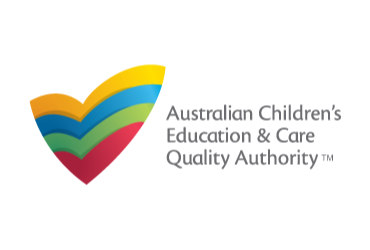
Articles
- Home
- Articles

Navigating Childcare Regulations: A Parent's Guide to Australian Childcare Laws
As parents, choosing the right childcare facility for your child is a crucial decision, one that involves not only assessing the quality of care but also understanding the regulatory framework that governs childcare in Australia. To help parents make informed choices and ensure their child's safety and well-being, it's essential to navigate Australian childcare regulations effectively.
Understanding the National Quality Framework (NQF)
The cornerstone of Australian childcare regulations is the National Quality Framework (NQF), a comprehensive set of national standards and regulations designed to ensure consistent high-quality childcare and early education services. The NQF covers various aspects of childcare, including educational programs, staff qualifications, safety measures, and governance.
Under the NQF, childcare centres must adhere to the following key components:
National Quality Standard (NQS): The NQS sets out seven quality areas that childcare centres must meet, including educational program and practice, children's health and safety, physical environment, staffing arrangements, relationships with children, collaborative partnerships with families and communities, and leadership and service management.
Educational Curriculum: Childcare centres are required to provide educational programs that are age-appropriate and promote children's learning and development. These programs align with the Early Years Learning Framework (EYLF) for children under school age.
Staff Qualifications: Regulations mandate specific qualifications and training for staff members, ensuring that children are cared for by qualified educators. The qualifications vary depending on the role and level of responsibility.
Staff-to-Child Ratios: Childcare centres must maintain appropriate staff-to-child ratios, ensuring that each child receives adequate supervision and care. Ratios may differ depending on the age group.
Childcare Rebates and Subsidies
Australian childcare regulations also encompass financial support mechanisms to assist parents with the cost of childcare. The Child Care Subsidy (CCS) is a significant program that helps eligible families reduce childcare expenses. To access CCS, parents must meet certain criteria, including work, study, or volunteer commitments and income thresholds.
Health and Safety Standards
Ensuring the health and safety of children in childcare centres is a top priority under Australian childcare regulations. Key aspects include:
Immunization Requirements: Childcare centres must ensure that children are up to date with their immunizations to protect against preventable diseases.
Emergency Procedures: Robust emergency procedures, including evacuation plans and first-aid training, are essential to safeguard children in case of emergencies.
Child Protection: Childcare providers must have policies and procedures in place to safeguard children from harm, including mandatory reporting of any concerns.
Staff Training and Professional Development
Australian childcare regulations require childcare staff to engage in ongoing professional development to enhance their skills and knowledge in early childhood education and care. This ensures that children receive the highest quality care and educational experiences.
Parental Rights and Responsibilities
Parents also have rights and responsibilities when it comes to their child's childcare experience. They are entitled to:
Access information about their child's care, including daily routines and educational programs.Provide input and feedback to the childcare centre.
Access a complaints resolution process if concerns arise.
Complaints and Dispute Resolution
In the event of concerns or disputes related to childcare, Australian regulations provide mechanisms for parents and caregivers to seek resolution. Childcare providers are required to have a documented complaints handling process to address grievances and concerns promptly.
Navigating Australian childcare regulations can be a complex process, but it is essential for ensuring the well-being and development of your child in a childcare centre. Parents are encouraged to research potential childcare providers thoroughly, ask questions, and seek guidance from relevant authorities when needed. By understanding and adhering to childcare regulations, parents can make informed choices that support their child's growth and development in a safe and nurturing environment.




